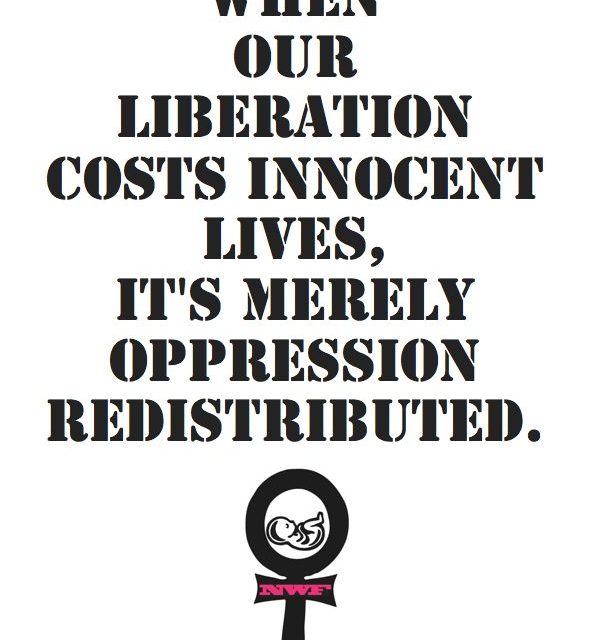Using power plays to exclude dissenting voices rarely does much to silence them. Often, it does the opposite.
That was the case this past week when the powers governing the Women’s March in Washington DC decided, after approving their sponsorship, that New Wave Feminists could not be a sponsor because of their pro-life views.
The result? A veritable explosion of coverage and opinion pieces raising awareness about pro-life feminism. Given that the biggest problem pro-life feminism has is convincing people that it is a real thing, those of us who identify couldn’t have asked for anything more.
There were numerous opinion pieces written on the topic, but do take a moment to read this one from Aimee Murphy of Life Matters Journal (shared more than 20,000 times on Facebook):
So, most of us were already set on protesting Trump’s inauguration. When the Women’s March was announced in November, we affirmed its core statement: “Women’s rights are human rights.” We just take human rights a step further than most modern feminists: We affirm the rights of pre-born children to their own lives, to their own bodies. We stand for nonviolence toward women and their children.
There were also far too many news stories to mention here. This is just a smattering from the biggest news organizations.
From the New York Times:
Asked to define feminism, [pro-life feminist] Ms. Lyon paused and said, “I would define it as the right to life out my womanhood.”
From The Atlantic:
Some of the pro-life women going to the march are looking for solace in the wake of the election. “I was very concerned about the fact that in 2017, our presidential candidate was such a diehard misogynist,” said Destiny Herndon-De La Rosa, the Texas-based president of a group called New Wave Feminists. “I get that he applied this pro-life label, but I don’t know very many people who genuinely believe he’s pro-life.”
From Slate:
Of course, feminism is a kind of club—if it has no shared principles, then it has no meaning. But by publicly rejecting the “membership” of women who oppose abortion rights, feminist leaders leave many potential allies on other issues behind. That may be a rational calculation for the sake of movement unity, but it’s no small number of people to reject. A 2015 poll by PPRI found that more than half of millennial women who identify as feminists consider themselves pro-life (18 percent) or both pro-life and pro-choice (37 percent).
From the Huffington Post:
“I consider myself a pro-life feminist, and I didn’t think we were being represented in this march,” said Mary Grace Coltharp, a 17-year-old from Virginia active in Students for Life. “I as a woman deserve to be represented, and because unborn female fetuses can’t represent themselves obviously.”
From Vox.com
It’s true that some of those who identify as pro-life feminists — especially younger generations with a more hip, modern sensibility — also take a decidedly intersectional, “yes-and” approach. Yes, treat pregnant women with dignity, and support new mothers and children by aggressively fighting poverty, and create a culture that celebrates fertility and femininity instead of fearing or repressing it, and oppose the death penalty, and fight for racial justice.
From Fox News:
“We just believe in protecting life from the womb to the tomb. … Obviously being pro-life is a different take on feminism,” Herndon-De La Rosa said. “Since women were viewed as property for a huge chunk of history, we don’t think it’s OK to view children as property, especially since they are the most vulnerable among us.”
Thanks to the Women’s March for attempting to silence pro-life feminists!






Trackbacks/Pingbacks